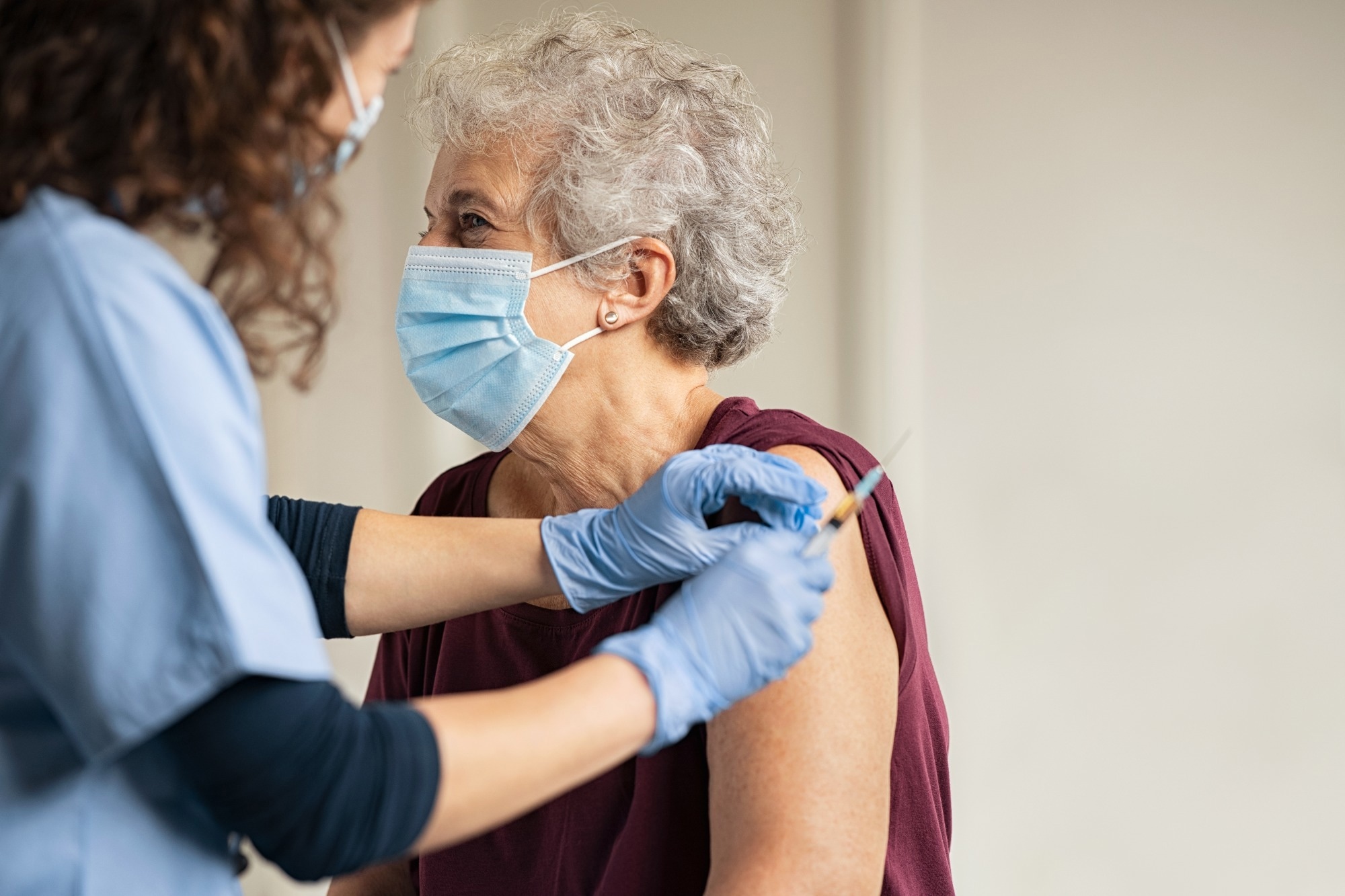The individuals comprising the study cohort exhibited elevated levels of troponin, C-reactive protein (CRP), and B-type natriuretic peptide and had substantial cardiac imaging aberrations.
 Study: Cytokinopathy with aberrant cytotoxic lymphocytes and profibrotic myeloid response in SARS-CoV-2 mRNA vaccine–associated myocarditis. Image Credit: GroundPicture/Shutterstock.com
Study: Cytokinopathy with aberrant cytotoxic lymphocytes and profibrotic myeloid response in SARS-CoV-2 mRNA vaccine–associated myocarditis. Image Credit: GroundPicture/Shutterstock.com
Background
One adverse event rarely reported after SARS-CoV-2 spike (S)-based mRNA vaccines is inflammation of the heart, viz., myocarditis, pericarditis, or myopericarditis, i.e., the combination of the two.
It is most common among adolescents and young males shortly after receipt of the second dose of mRNA vaccines, BNT162b2 or mRNA-1273. Per a recent estimate, the incidence of myopericarditis increased from zero to 35.9 cases per 100,000 males.
Given the challenges in studying such rare events, the etiology of coronavirus disease 2019 (COVID-19) mRNA-lipid nanoparticle (LNP) vaccine-related myopericarditis remains unclear.
A mechanistic understanding of the underlying pathology, associated immune alterations, and potential long-term effects is urgently warranted. It would rapidly expand clinical applications of effective mRNA-based vaccine products.
Several different hypotheses have suggested varied reasons for mRNA vaccine–triggered myopericarditis. According to an early hypothesis, SARS-CoV-2 S induced cardiac-targeted autoantibodies through molecular mimicry.
Other studies suggested that LNP adjuvants in mRNA vaccines trigger aberrant innate and adaptive immune reactivity. Other studies have implicated inflammatory cytokines, natural killer (NK), and T lymphocytes in such a pathology.
The age, gender, and genetics of concerned individuals could have influenced the proposed mechanisms, raising the possibility of some subpopulations being at a higher risk of experiencing SARS-CoV-2 mRNA vaccine–induced myopericarditis.
About the study
In the present study, researchers performed a multimodal analysis of patients with acute myocarditis, pericarditis, or myopericarditis using unbiased approaches to characterize malfunctioning immune signatures during disease.
They profiled patients to define immunopathological alterations using multifaceted techniques, such as SARS-CoV-2 neutralizing antibodies (nAbs) and neutralization assays, exoproteome cardiac autoantibody profiling, serum proteomics, enzyme-linked immunosorbent assay (ELISA), peripheral blood single-cell transcriptome and repertoire sequencing, and flow cytometry (FC).
Finally, the team conducted clinical follow-up between two to nine months of COVID-19 vaccination using cardiac magnetic resonance (CMR) imaging to evaluate the long-term effects of myocarditis, pericarditis, or myopericarditis.
Study findings
The authors observed that patients with myo/pericarditis or myopericarditis following mRNA vaccination neither exhibited elevated TH2 cytokines nor generated SARS-CoV-2–specific nAb responses in higher magnitudes.
Moreover, there was no evidence of cardiac-directed autoantibodies, making alternative hypotheses of disease pathogenesis unlikely.
The B cell receptor (BCR) repertoire analysis showed no evidence of clonal expansion or somatic hypermutations in these patients, thus nullifying the role of cross-reacting humoral responses in disease pathogenesis.
Instead, the study analysis uncovered that complete cytokinopathy and activation of cytotoxic lymphocytes with unique transcriptional signatures characterized mRNA-LNP vaccine-induced myopericarditis.
Accordingly, the authors noted dysregulation of natural killer group two member D protein (NKG2D) in NK cells, an activating receptor that impasses stress ligands on the heart, triggering cytotoxic immune effector responses.
Elevated serum interleukin-15 (IL-15), an effective NK and T cell activator, accompanied these cellular changes.
Further, the authors noted activated clusters of differentiation four (CD4)+ and CD8+ cytotoxic T cells expressing chemokine receptors CXCR3 and CCR5. They also noted that their ligands, CXCL10 and CCL4 were elevated in myopericarditis patients’ sera shortly after mRNA vaccination.
These chemokines play important roles in cytotoxic T-cell and TH1 responses and activating infiltration of cardiac tissue by T-cells.
Pathologies of vaccine-associated myocarditis following smallpox and tetanus vaccinations are largely eosinophilic, as previously reported.
However, the TCR repertoire analysis of this study uncovered a cytokine-dependent activation following COVID-19 mRNA vaccination, in agreement with reports from cardiac biopsies demonstrating lymphocytic infiltration.
Furthermore, the authors noted persistent cardiac imaging aberrations in some patients suggesting cardiac fibrosis during longitudinal clinical follow-up. They also observed elevated serum extracellular matrix (ECM) remodeling enzymes, e.g., matrix metalloproteinase 1 (MMP1)-9 and tissue inhibitor of MMP1 (TIMP1), monocyte cell populations with a profibrotic signature, and augmentation of soluble CD163 (sCD163), suggestive of cardiac macrophage activation.
These findings indicated ongoing wound healing, scar formation, and tissue remodeling following cardiac injury in patients with vaccine-associated myocarditis.
Intriguingly, adverse events like myopericarditis develop more frequently after the second vaccine dose triggering heart inflammation.
Future studies should investigate what governs this phenomenon, virtual memory responses, epigenetic reprogramming of effector subsets, or innate immune memory.
Conclusions
To conclude, the current study findings ruled out many previously proposed mechanisms of COVID-19 mRNA vaccine–induced myopericarditis.
In lieu, it implicated aberrant cytokine-driven lymphocyte activation, cytotoxicity, and inflammatory and profibrotic myeloid cell responses in the immunopathogenesis of mRNA vaccination-related myopericarditis.
Nonetheless, future studies should attempt to establish the translational relevance of this work and further optimize the safety profile of mRNA-LNP-based COVID-19 vaccines in subgroups with specific demographic, adolescents, and younger males.